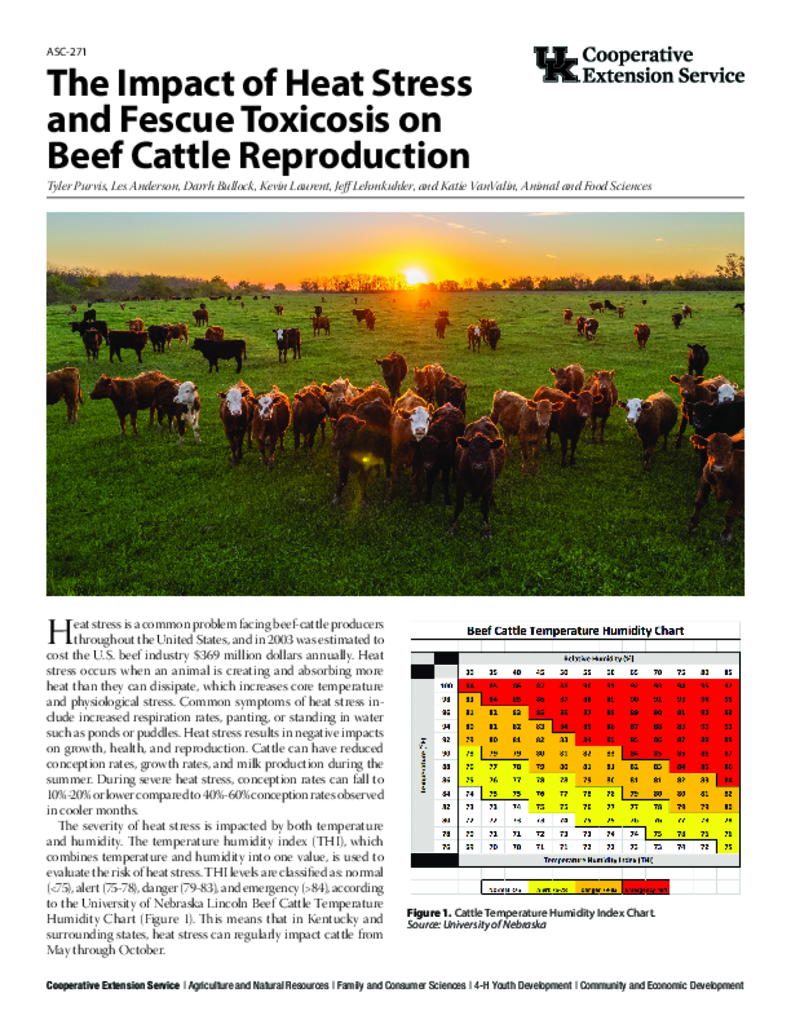The Impact of Heat Stress and Fescue Toxicosis on Beef Cattle Reproduction
The Impact of Heat Stress and Fescue Toxicosis on Beef Cattle Reproduction
Abstract
Heat stress is a common problem facing beef-cattle producers throughout the United States, and in 2003 was estimated to cost the U.S. beef industry $369 million dollars annually. Heat stress occurs when an animal is creating and absorbing more heat than they can dissipate, which increases core temperature and physiological stress. Common symptoms of heat stress include increased respiration rates, panting, or standing in water such as ponds or puddles. Heat stress results in negative impacts on growth, health, and reproduction. Cattle can have reduced conception rates, growth rates, and milk production during the summer. During severe heat stress, conception rates can fall to 10%-20% or lower compared to 40%-60% conception rates observed in cooler months.
Core Details
Publication Date
May 19, 2025
Categorical Details
Keywords
Heat Stress, Fescue Toxicosis, Beef Cattle, Reproduction,
© 2025 University of Kentucky, Martin-Gatton College of Agriculture, Food and Environment

